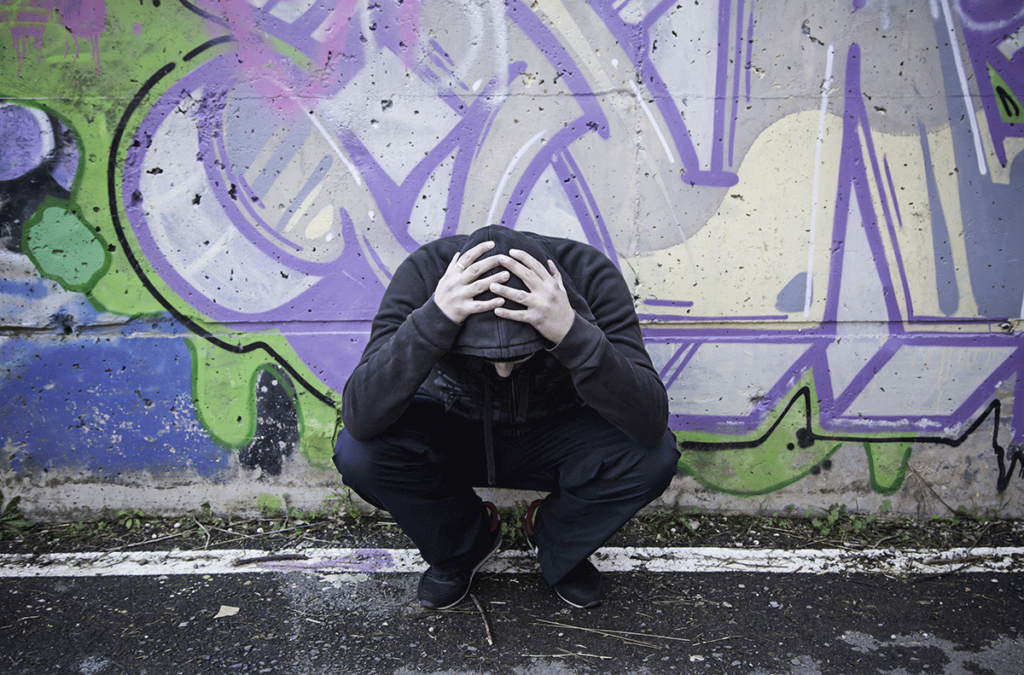People across the United States experiment with drugs and alcohol daily. Contrary to popular belief, many substances can lead to more problematic drug use. These gateway drugs are increasingly common and especially harmful for those living with co-occurring mood disorders like anxiety, depression, obsessive-compulsive disorder (OCD), attention-deficit/hyperactivity disorder (ADHD), or bipolar disorder. Drug addiction treatment is the safest, most effective approve to recovery.
If you or someone in your life is using gateway drugs, know you are not alone. Our team can help. The team at A Better State can help. Our clinic provides clients across the New Hampshire area with trauma-informed outpatient treatment for addiction and mental health. Call us now at 781.412.1488 to learn more about what are gateway drugs. We can also help you better understand our comprehensive drug addiction treatments in Hudson, New Hampshire.
What Are Gateway Drugs?
Gateway drugs are a common topic in drug prevention programs in schools across the country. Unfortunately, many people believe gateway drugs are only myths. However, gateway drugs provide similar neurological responses to hard drugs. They are easily accessible, often legal, and affordable addictive substances that can lead to substance abuse, addiction, and more harmful drugs. The most common types of gateway drugs include:
Cigarettes and Tobacco Products
Nicotine, the highly addictive ingredient in cigarettes, produces the calm euphoria and decreased appetite cigarettes are known for. It is also the chemical responsible for tobacco addiction. Like most drugs, when someone develops a nicotine addiction, they have to smoke, vape, or frequently chew to prevent painful withdrawal symptoms. For many, this can lead to combining cigarettes with marijuana and alcohol for more potent effects. Tobacco vaping is increasingly popular and dangerous, leading many people to try other inhalants.
Alcohol
Because alcohol is legal and easy to get, many people experiment with alcohol. One of the most common gateway drugs, alcohol, is often considered more benign than any other addictive substance. As a depressant, alcohol slows the nervous system and impairs judgment. While it may temporarily make someone more sociable, it can negatively affect mental health. Many people use other drugs while drinking, increasing the effects and danger of both alcohol and drugs. Like other addictive substances, the more often someone drinks, the more alcohol they need to feel the same effect. This often leads to combining alcohol with cigarettes, marijuana, prescription painkillers, or cocaine and methamphetamines. Alcohol is easy to misuse, and one can become addicted through social drinking.
Marijuana
Marijuana use is increasingly common and controversial in addiction. While people have used cannabis for centuries, new, more potent strains have made the THC in marijuana more addictive. An increase in unregulated synthetic strains can make cannabis products even more addictive. While many people don’t believe marijuana is addictive, people become dependent on THC. Cannabis use disorder is an addiction like any other drug addiction that often leads to other drug use.
Prescription Drugs
Prescription drugs are easily accessible and given to people every day. Medications like benzos, Adderall, and opioid painkillers are common and addictive. Selective serotonin reuptake inhibitors (SSRIs) are also prone to dependence and can lead to drug use. For many people, a prescription for any of these drugs can lead to prescription abuse and lead many to seek stronger illicit drugs with similar effects.
Using gateway drugs can be part of a person’s experimentation and life experience. However, many people use gateway drugs to self-soothe unresolved trauma, regulate untreated mood disorders, and manage stress. This can lead to substance abuse and addiction unless someone seeks psychiatric and medical treatment. Gateway drug use should always be taken seriously. On their own, gateway drugs can be detrimental to a person’s health. When combined, unfortunately, they can be lethal.
Why You Should Stop Using Gateway Drugs
Gateway drugs are often overlooked because many are part of everyday life across the country. Unfortunately, addiction can develop at any point in a person’s life. Stress, trauma, and mental health can lead to tobacco, cannabis, alcohol, and prescription medication addiction. Once someone develops an addiction or addictive habits, they are more likely to seek more potent substances like heroin, meth, and cocaine.
If you or someone you love is worried about gateway drugs, we can help, no matter the stage of recovery. With daytime and evening intensive outpatient programs (IOPs) or partial hospitalization programs (PHPs), our New Hampshire clinic has drug treatment programs to help you and your loved ones recover and thrive. With a holistic, trauma-informed approach to addiction and mental health, our clients enjoy effective outpatient treatments that suit their busy lives.
Get Started with Drug Treatment at A Better State
Gateway drugs, such as alcohol and marijuana, can lead to harder substances like cocaine and heroin. Addiction can ruin relationships, careers, and health. A Better State offers comprehensive drug treatment programs to help individuals overcome addiction and begin a journey toward recovery. Our evidence-based approach includes individual therapy, group support, medication management, and aftercare planning. We also provide family therapy to address the impact of addiction on loved ones. Take the first step towards a better life. Contact A Better State now at 781.412.1488 to find out what are gateway drugs and learn more about our drug addiction programs.


